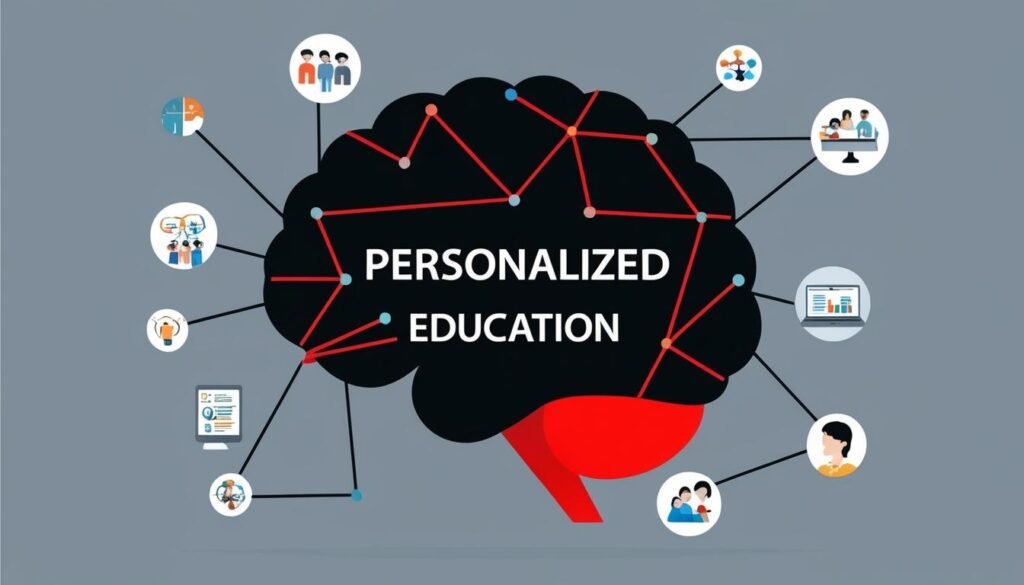The integration of artificial intelligence in education is transforming how learners engage with content, offering tailored experiences and addressing accessibility challenges.
The rapidly evolving landscape of artificial intelligence (AI) continues to make significant inroads across numerous industries, with one of the most profound impacts observed in the field of education. This burgeoning sector, particularly driven by EdTech startups, is harnessing AI to develop innovative tools aimed at enhancing learning experiences, personalising education, and improving accessibility for all learners. The software being developed at these companies is not merely a job for many; it represents an opportunity to influence the future of education.
EdTech startups find themselves at the intersection of technology and education, addressing critical challenges within the learning ecosystem. They focus on bridging achievement gaps and promoting lifelong learning by reshaping educational delivery and consumption patterns. AI serves as a cornerstone in this transformation, enabling the analysis of data to predict educational outcomes and tailor content to meet individual student needs.
The advantages of this technological integration extend to personalised learning experiences. Traditional educational approaches often employ a one-size-fits-all model, which frequently neglects distinct individual learning styles and paces. Advanced educational AI software seeks to rectify this by employing algorithms that analyse learners’ behaviours, performances, and preferences. For example, an AI-driven platform might identify a student’s struggle with fractions while recognising their proficiency in geometry. The result is a tailored curriculum that enhances support in areas of difficulty while ensuring that strengths are also challenged.
Within this dynamic field, the collaborative nature of developing educational AI software cannot be overstated. It typically involves a multidisciplinary team that includes educators, psychologists, instructional designers, and data scientists, all working together to create effective products. Educators provide valuable insights into learning processes, while data scientists help identify user behaviour patterns that inform software design. User testing, pivotal to this process, relies on feedback from both teachers and students, further refining the software development.
However, the journey is not devoid of challenges. One significant hurdle is ensuring that AI systems are ethical and unbiased. Given that these systems learn from existing data, there is a risk of them unintentionally reinforcing pre-existing biases related to socioeconomic factors. To mitigate such risks, EdTech startups focus on principles of transparency, accountability, and diversity throughout their AI development procedures, thereby ensuring that data is curated with care and algorithms are designed with a focus on equity.
Balancing technological sophistication with user-friendliness remains another pressing challenge within the industry. Despite the complexity of AI systems, it is essential that these technologies are intuitive and accessible for both students and educators. Understanding user needs and prioritising accessible interface design become paramount to the successful implementation of educational AI tools.
The global implications of EdTech startups are noteworthy. AI-powered educational platforms are making quality education accessible in underserved regions, where limited resources and untrained educators hinder learning opportunities. These platforms not only deliver lessons in multiple languages but also offer offline functionality and adaptability to local contexts, thereby addressing significant gaps in educational access.
Professionals within this sector find themselves positioned at the forefront of an educational transformation, witnessing firsthand the impact their work has on learners worldwide. Every development made in this field possesses the potential to benefit millions, from urban centres to remote villages, emphasising the scalability of AI in education to change outcomes on a massive scale.
Looking to the future, the aspirations tied to the development of advanced educational AI software paint a transformative vision. Envision a scenario in which every student benefits from a personalised virtual tutor, teachers are equipped with actionable insights to enhance classroom instruction, and lifelong learning becomes seamlessly integrated into daily activity.
EdTech startups are laying the groundwork for this future, combining AI’s potential with educators’ expertise to create tools that could redefine what education can achieve. For individuals passionate about technology and education, there exists a unique opportunity to partake in this transformative journey.
In summary, the field of educational AI development within EdTech startups is not only characterised by cutting-edge technological advances but also by a commitment to mission-driven efforts to enhance and equalise access to education. With numerous opportunities available at companies seeking to hire talent, there is a growing movement dedicated to redefining learning and growth in a global context. Whether as a developer, data scientist, or designer, working in EdTech represents a chance to make a meaningful impact in the educational sphere.
Source: Noah Wire Services
- https://campustechnology.com/articles/2025/01/15/3-areas-where-ai-will-impact-higher-ed-in-2025.aspx – Corroborates the impact of AI on higher education, including personalized learning, AI literacy, and operational efficiency.
- https://springsapps.com/knowledge/main-ai-trends-in-education-2024 – Supports the trend of AI in education, including personalized learning paths, adaptive learning companions, and inclusive education.
- https://www.eschoolnews.com/digital-learning/2025/01/02/ai-predictions-for-2025/ – Predicts the increased infusion of AI in education initiatives and platforms, enhancing learning experiences and accessibility.
- https://campustechnology.com/articles/2025/01/15/3-areas-where-ai-will-impact-higher-ed-in-2025.aspx – Highlights the importance of ethical and unbiased AI systems, and the need for transparency and accountability in AI development.
- https://springsapps.com/knowledge/main-ai-trends-in-education-2024 – Discusses the role of AI in making education more inclusive, especially for students with physical and learning disabilities.
- https://campustechnology.com/articles/2025/01/15/3-areas-where-ai-will-impact-higher-ed-in-2025.aspx – Emphasizes the collaborative nature of developing educational AI software involving educators, psychologists, and data scientists.
- https://www.eschoolnews.com/digital-learning/2025/01/02/ai-predictions-for-2025/ – Mentions the global implications of AI-powered educational platforms in making quality education accessible in underserved regions.
- https://springsapps.com/knowledge/main-ai-trends-in-education-2024 – Describes how AI can streamline administrative and classroom management tasks, enhancing operational efficiency.
- https://campustechnology.com/articles/2025/01/15/3-areas-where-ai-will-impact-higher-ed-in-2025.aspx – Explains how AI can provide real-time feedback, personalized learning pathways, and automated support to enhance student engagement and learning outcomes.
- https://www.eschoolnews.com/digital-learning/2025/01/02/ai-predictions-for-2025/ – Predicts the future of education with personalized virtual tutors and actionable insights for teachers, driven by AI advancements.


